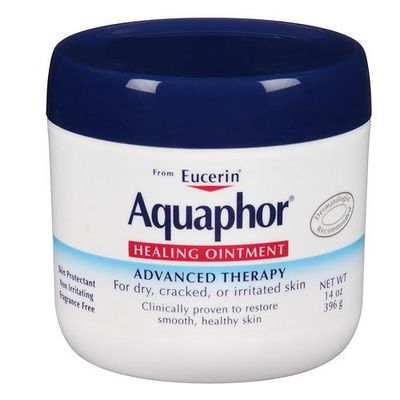To prevent coronavirus, go beyond hand washing and moisturize, too

Are your hands painfully dry and cracked because you’ve been following the widespread advice to frequently wash them or apply hand sanitizer to prevent the spread of the coronavirus? If so, you should be aware of a less widely cited hygiene recommendation: to moisturize, as well.
“Keeping skin moisturized is important,” said Craig Shapiro, an attending physician in pediatric infectious diseases at Nemours/Alfred I. duPont Hospital for Children in Delaware. “If the skin is breaking down or raw, then the soap and alcohol disinfectants do not work, as well. Also, when skin is chapped and broken, it’s uncomfortable, and people can be less likely to wash their hands to prevent transmission of germs and infection.”
Cracked and bleeding hands also are more susceptible to infections. “Whenever you have a break in that skin barrier, that allows germs and bacteria to invade the skin area,” said Christina Johns, senior medical adviser and spokeswoman for PM Pediatrics. Any microbe can technically enter through open wounds, Johns said, but coronavirus tends to enter the body through the respiratory system. Through the skin, transmission tends to be typical skin bacteria such as staph infections and strep.
Johns and Shapiro confirmed that moisturizing hands does not increase the likelihood of picking up or spreading germs, especially if the hands are clean. Moisturizing hands does reduce microbial shedding from the skin and is part of good hand hygiene, which will protect people from picking up viruses and reduce the likelihood of transmission.
Johns recommends that people apply a thick, emollient moisturizer in ointment form such as Aquaphor Healing Ointment rather than rely on creams and lotions, which can have alcohol and cause further drying.
Shapiro recommends selecting a soap or sanitizer with an emollient and avoiding perfumes and dyes, as they can further irritate skin. Soaps and sanitizers with moisturizers can be just as effective, though Shapiro says hand sanitizers should have at least 60% alcohol.
“Lotion doesn’t need to be a constant thing to be effective,” said Preeti Malani, an infectious-disease doctor and chief health officer at the University of Michigan. And it doesn’t need to be expensive: Drugstore brands, such as Vaseline and Aquaphor, can work well. Moisturizing lotions work by locking in existing moisture, so the ideal time to apply them is after washing when the skin is hydrated. “At bedtime, put on some good-quality, inexpensive, effective moisturizer,” she said. “If your skin is becoming raw and dry, you might be washing your hands too much.”
Johns advises of the moisturizer: “Don’t share it with anyone else. You want to use clean hands – you don’t want to have dirty fingers on the pumps. I know a lot of people like to swipe their finger on the top of the tube, but touch the packaging as (little) as possible. Fewer things coming into contact is best practice in general in terms of minimizing germs and microbes.”
While hand-washing can leave skin drier than hand sanitizer, doctors caution against relying exclusively on sanitizer. When hands are visibly dirty or greasy, soap and water should be used instead.
The Centers for Disease Control and Prevention recommends washing your hands frequently, especially after going to the bathroom, before eating and after blowing your nose, coughing or sneezing. You should spend at least 20 seconds at the sink and make certain to lather up the parts of the hands that are often overlooked – the backs, between the fingers, the thumbs and under the nails. (Some experts recommend cutting your nails.) After washing, you should dry your hands thoroughly.
Keeping hands in good condition is especially important for health care workers, who must wash their hands frequently and are at a greater risk of spreading infections, Malani said.
But she warned against sharing lotion bottles in health care settings, citing the cautionary tale of a nurse’s fungal nail infection that was colonized in a communal lotion bottle – and then spread to patients. “We cultured all of her stuff at home – her Oil of Olay, loofah and Vaseline, and it all had (the fungus),” she said. “It was an extreme situation.”